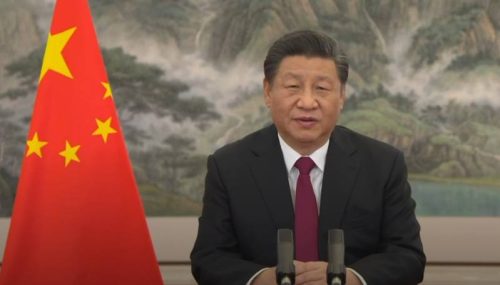Chinese Premier Li Qiang stated on Tuesday that the Chinese economy is open for business and emphasized its potential for foreign investment. He urged the world to reduce barriers to competition and trade to address global challenges.
China is facing a slow post-pandemic recovery and a real estate slump, raising concerns among overseas executives about its long-term growth prospects.
European Commission President Ursula von der Leyen highlighted the need for Chinese leaders to address the trade imbalance between Europe and China in a meeting with Li.
Speaking at the World Economic Forum in Davos, Li mentioned that the Chinese economy rebounded, estimating a growth of around 5.2% in 2023, surpassing the official target of about 5%.
Premier Li emphasized China’s steady economic progress and its ability to handle ups and downs while providing global impetus. He assured that China’s long-term growth trend would remain unchanged.
Li, leading a large government delegation at the World Economic Forum, stressed the importance of healthy competition for enhancing cooperation and innovation.The premier called for the removal of barriers to competition, cooperation on environmental strategies, and international scientific exchange
Li underscored the significance of keeping global supply chains stable and smooth in his Davos speech.
He acknowledged a growing North-South divide, emphasizing the need for global cooperation on development.
Li highlighted China’s role in boosting global demand with its rapidly urbanizing population of 1.4 billion people. China’s premier reaffirmed the country’s commitment to opening up its economy and creating favorable conditions for sharing opportunities.
Li stated that investing in the Chinese market is not a risk but an opportunity.
BOARDROOM SCEPTICISM
Despite China declaring itself open for business, skepticism remains in some boardrooms due to concerns about anti-espionage laws, raids on consultancies, and exit bans.
Premier Li reassured addressing reasonable concerns from the global business community and met with business leaders like JP Morgan CEO Jamie Dimon and others during a lunch.
Businesses express worries about tightening regulations and a more favorable playing field for state-owned companies in China. In the July-September quarter, China recorded its first quarterly deficit in foreign direct investment since 1998.
The World Economic Forum had over 2,800 leaders from 120 countries participating, including more than 60 heads of state.
Premier Li did not mention conflicts in Ukraine or Gaza in his Davos speech. U.S. Secretary of State Antony Blinken stated no plans to meet anyone from the Chinese delegation in Davos but affirmed continued high-level engagement with Beijing.
U.S. Secretary of State Antony Blinken stated that there’s no crossover in meetings with Chinese officials, mentioning a recent visit by a senior Chinese official to Washington.
Chinese Foreign Minister Wang Yi called for a larger, authoritative Israeli-Palestinian peace conference and a two-state solution timetable amid escalating Gaza conflict and tensions in the Red Sea.
Ukrainian President Volodymyr Zelenskiy emphasized the importance of China’s presence in future peace meetings convened by Kyiv, though no meeting with Premier Li was officially scheduled.
















